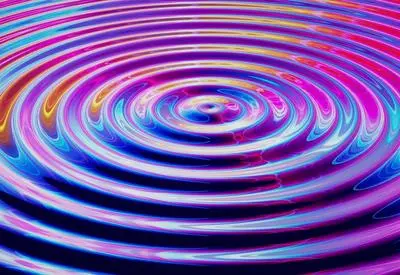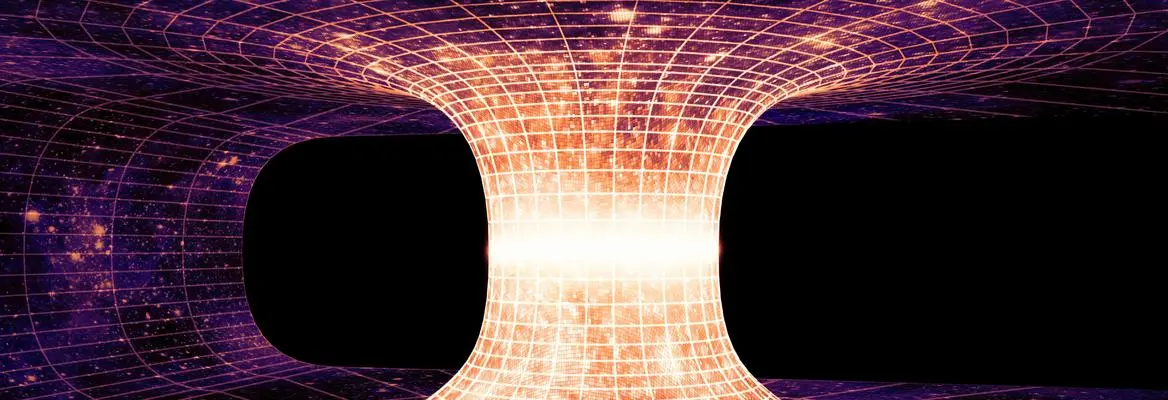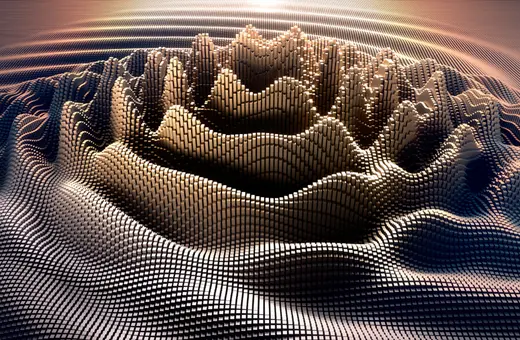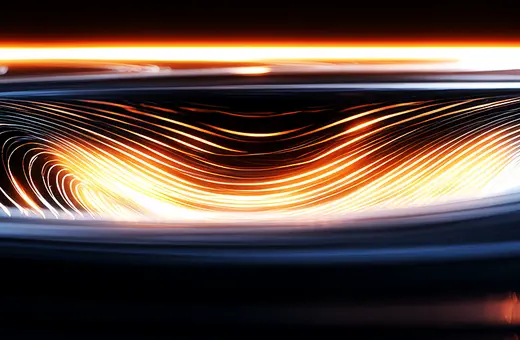Recent headlines about physicists having created a wormhole using Google’s quantum computer are misleading. Not only did they not create a wormhole in spacetime, the kind that Einstein’s equations suggest is possible, they didn’t even create a hologram of a wormhole, as the original Nature article claimed. Martin Bauer explains what the Sycamore experiment was actually all about.
A ‘wormhole’ is a structure connecting disparate points in space based on special solutions of Einstein’s field equations. It’s a feature of the geometry of spacetime often depicted by a folded paper, bringing distant points in direct contact. Dreams of sending information or even overcoming enormous distances in space by travelling through a tunnel in spacetime have fascinated scientists and science fiction writers since wormholes were first described by Einstein and Rosen in 1935. However, we have never observed such a wormhole, nor is it clear whether they even exist in our Universe.
 SUGGESTED READING
Chaos theory eliminates quantum uncertainty
By Tim Palmer
SUGGESTED READING
Chaos theory eliminates quantum uncertainty
By Tim Palmer
Recently reports on a new result seem to suggest otherwise: ‘Physicists Create the Smallest, Crummiest Wormhole You Can Imagine’ writes for example the New York Times. So have physicists created a wormhole by changing the geometry of spacetime? No, they haven’t. The Nature headline on the same result reads “A holographic wormhole traversed in a quantum computer". Holograms are 2 dimensional images that look 3 dimensional, or more generally they capture all the information of a 3-dimensional object. So does this mean physicists created a hologram of a wormhole, showing that the information of an actual spacetime tunnel can be captured on a surface? No, they haven’t done that either.
In order to understand the origin of the confusion we have to look at what was really done in the experiment and how it relates to the concept of a wormhole. Physicists from Caltech, Harvard, MIT and Fermilab ran a program on Google’s quantum computer Sycamore and measured observables in a highly entangled system. Quantum computers are computers in which regular bits, that can take the values 1 or 0, are replaced by quantum bits (qubits) which can hold the values 0 or 1 but also superpositions of these. Because they are quantum mechanical systems, qubits can be entangled. Entanglement is a quantum mechanical effect in which two separate objects have to be described by the same wave function, even if they are spatially separated. Measurements on parts of the system are then correlated with the other part in a way that is unique to quantum mechanics. It is such an important prediction that the experimental verification of quantum entanglement using photons was rewarded the Nobel prize in physics this year. Qubits on quantum computers can be entangled in the same way, and even though the number of stable qubits on quantum computers is currently very limited, they promise to outperform classical computers in the future.
___
This experiment could have been performed without anyone involved even knowing Einstein's equations.
___
All of this sounds like good old quantum mechanics. There isn’t a notion of a wormhole or even gravity in here at all. In fact, this experiment could have been performed without anyone involved even knowing Einstein's equations. So how do we get from here to a wormhole?





















Join the conversation